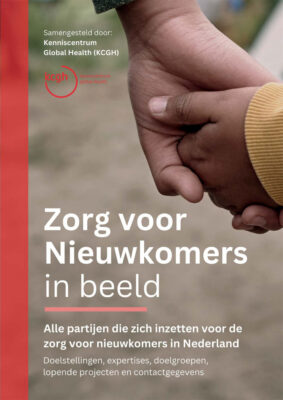Main content
Well before the formulation of the eight Millennium Development Goals (MDGs) in 2000, it was recognized that child health forms an important component of global health – not only because children are the future of mankind on our planet and therefore investment in their health is critical for long-term productivity, but also because child mortality was still at an unacceptable high level. Although in comparison with 1990 huge improvements were made in child health, the MDGs were not reached in the target year 2015. This was one of the reasons for formulating the Sustainable Development Goals (SDGs) in 2015, with 2030 as the new target year. Within the framework of in total 17 SDGs, 160 more specific targets were formulated, which cover a very broad area beyond health and are extremely ambitious, not to say unrealistic. Yet, it can be concluded that the improvement of global child health (GCH) remains an important aspect on the global health agenda.
During the MDG-time period (1990-2015), we saw a maturation in GCH professionalism. Before 1990, doctors working in the field of GCH were often general paediatricians with an interest in care for children in Africa, South America and/or Asia. But in recent years, GCH-paediatricians have specialized within the GCH-field. We now have, for example, paediatric TB and HIV experts, specialists in global paediatric critical care and experts in the field of child nutrition. This development has had a significant impact on the quality and quantity of GCH research and greatly improved teaching in GCH.
In The Netherlands, in academic hospitals in Amsterdam, Groningen, Nijmegen and Utrecht, GCH came on the agenda in the 90s of the previous century and resulted also in the appointment of Bernard Brabin as the first professor in Global Child Health (University of Amsterdam). GCH gained further momentum in recent years with a rapidly increasing number of paediatricians specializing in sub areas of GCH, like global pulmonology and oncology at the University Medical Centre Utrecht, nutrition at the University Medical Centre Groningen and neonatology, critical care, TB, oncology, malaria and nutrition at the Amsterdam Centre for Global Child Health (part of the Amsterdam University Medical Centers). In addition, an ‘Expertise Group Global Child Health’ was created under the Dutch Paediatric Society (NVK) together with the Dutch Society for Global Health (NVTG), which mainly focuses on the health of young migrants in the Netherlands. These developments in the Netherlands have contributed to a vastly growing number of GCH research projects, teaching and training activities for medical students, registrars and consultants, and to clinical care expertise. Due to the relatively uncontrolled growth of these GCH related sub-specialisations, a logical structure within the GCH area of expertise is missing. For example, there are currently experts in areas that are age-based (e.g. neonatology), next to experts in areas that are disease- (e.g. Tb, HIV, Malaria) and syndrome-based (e.g. malnutrition, anaemia).
What is needed to make these positive developments in GCH-maturation in the Netherlands sustainable? The answer to this question is fourfold. First, recognition by the medical schools that GCH teaching should be part of the training of all medical doctors in the Netherlands. The main reason is that, even if you are not going to work as a doctor abroad, GCH knowledge will be important for most doctors in order to work in our ‘multicultural’ Dutch society. Second, further improvement of collaboration in the area of education and research between the GCH-specialists working in the various academic institutes in the Netherlands. Third, trying to structure GCH expertise areas by agreement on a limited but logical list of areas of expertise. Finally, the most important contributor to sustainability of GCH in the Netherlands will be to educate and train the next generation of GCH paediatric experts in the Netherlands and abroad.
Further reading
- GBD 2019 Under-5 Mortality Collaborators: Global, regional, and national progress towards Sustainable Development Goal 3.2 for neonatal and child health: all-cause and cause-specific mortality findings from the Global Burden of Disease Study 2019. Lancet 2021; 398: 870–905.
- Clark H, Coll-Seck AM, Banerjee A: A future for the world’s children? A WHO–UNICEF–Lancet Commission. Lancet 2020; 395: 605–58.
- Levels & Trends in Child Mortality United Nations Report 2020. Estimates developed by the UN Inter-agency Group for Child Mortality Estimation. United Nations Children’s Fund, New York, 2020.



















































